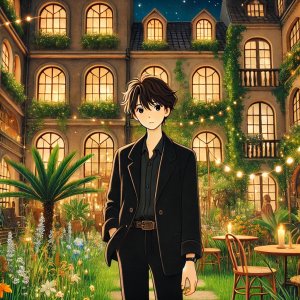This review may contain spoilers
Bruises in Uniform: The Violence We Learn to Live With
There are shows that entertain, some that provoke. And then there are ones like D.P. — stripped down to nerve and bone, unwilling to blink, and impossible to forget.
From the very first frame, it was clear this wasn’t just another military drama. There’s a hollow quiet to it, even in its loudest moments. A stillness that doesn’t soothe, but smothers. The premise alone — a unit tasked with hunting down military deserters — could’ve leaned procedural, even sensational. But D.P. chooses something harder. It doesn’t sensationalize. It documents. Painfully. Honestly. Without filter or apology.
Jung Hae-in delivers a performance that’s almost ghostlike. His An Jun-ho moves like someone constantly measuring the distance between doing the right thing and surviving the day. There’s no grand heroism here. Just observation. Reaction. A slow, soul-wearing evolution of a man trying to hold onto something soft in a place designed to strip softness away. His silence speaks louder than any monologue — because in a world where speaking out gets punished, silence is its own language of grief.
And then there’s Koo Kyo-hwan, whose presence injects a strange, volatile energy into the bleak machinery of the military world. As Ho-yeol, he walks the line between comic relief and aching vulnerability — the kind of guy who makes you laugh and then punches you in the gut with a single look. Their partnership doesn’t follow the usual arc of “buddy cop” tropes. It’s messier. More human. Built on friction, exhaustion, and unspoken understanding.
What hits hardest is how the show treats violence. Not as plot, not as shock — but as atmosphere. It’s everywhere. In every shouted command, in every sideways glance, in the daily routines twisted by cruelty passed down like tradition. D.P. doesn’t offer answers. It doesn’t soften the edges. It simply holds the lens steady while everything inside the frame fractures.
Each episode pulls deeper into the machinery — hazing that’s been normalized, abuse framed as discipline, silence demanded in place of justice. And while the show never yells, the quiet rage builds like pressure behind drywall. When it finally cracks, it’s not a twist. It’s inevitable. And devastating.
There’s no comfort here. No noble redemption. Just a bitter understanding that some systems aren’t broken — they were built this way. And the people trapped inside them? They bleed quietly. Until they don’t.
D.P. never begs to be admired. It simply exists — heavy, brutal, and achingly real. And in doing so, it doesn’t just tell a story. It leaves scars.
From the very first frame, it was clear this wasn’t just another military drama. There’s a hollow quiet to it, even in its loudest moments. A stillness that doesn’t soothe, but smothers. The premise alone — a unit tasked with hunting down military deserters — could’ve leaned procedural, even sensational. But D.P. chooses something harder. It doesn’t sensationalize. It documents. Painfully. Honestly. Without filter or apology.
Jung Hae-in delivers a performance that’s almost ghostlike. His An Jun-ho moves like someone constantly measuring the distance between doing the right thing and surviving the day. There’s no grand heroism here. Just observation. Reaction. A slow, soul-wearing evolution of a man trying to hold onto something soft in a place designed to strip softness away. His silence speaks louder than any monologue — because in a world where speaking out gets punished, silence is its own language of grief.
And then there’s Koo Kyo-hwan, whose presence injects a strange, volatile energy into the bleak machinery of the military world. As Ho-yeol, he walks the line between comic relief and aching vulnerability — the kind of guy who makes you laugh and then punches you in the gut with a single look. Their partnership doesn’t follow the usual arc of “buddy cop” tropes. It’s messier. More human. Built on friction, exhaustion, and unspoken understanding.
What hits hardest is how the show treats violence. Not as plot, not as shock — but as atmosphere. It’s everywhere. In every shouted command, in every sideways glance, in the daily routines twisted by cruelty passed down like tradition. D.P. doesn’t offer answers. It doesn’t soften the edges. It simply holds the lens steady while everything inside the frame fractures.
Each episode pulls deeper into the machinery — hazing that’s been normalized, abuse framed as discipline, silence demanded in place of justice. And while the show never yells, the quiet rage builds like pressure behind drywall. When it finally cracks, it’s not a twist. It’s inevitable. And devastating.
There’s no comfort here. No noble redemption. Just a bitter understanding that some systems aren’t broken — they were built this way. And the people trapped inside them? They bleed quietly. Until they don’t.
D.P. never begs to be admired. It simply exists — heavy, brutal, and achingly real. And in doing so, it doesn’t just tell a story. It leaves scars.
Was this review helpful to you?







